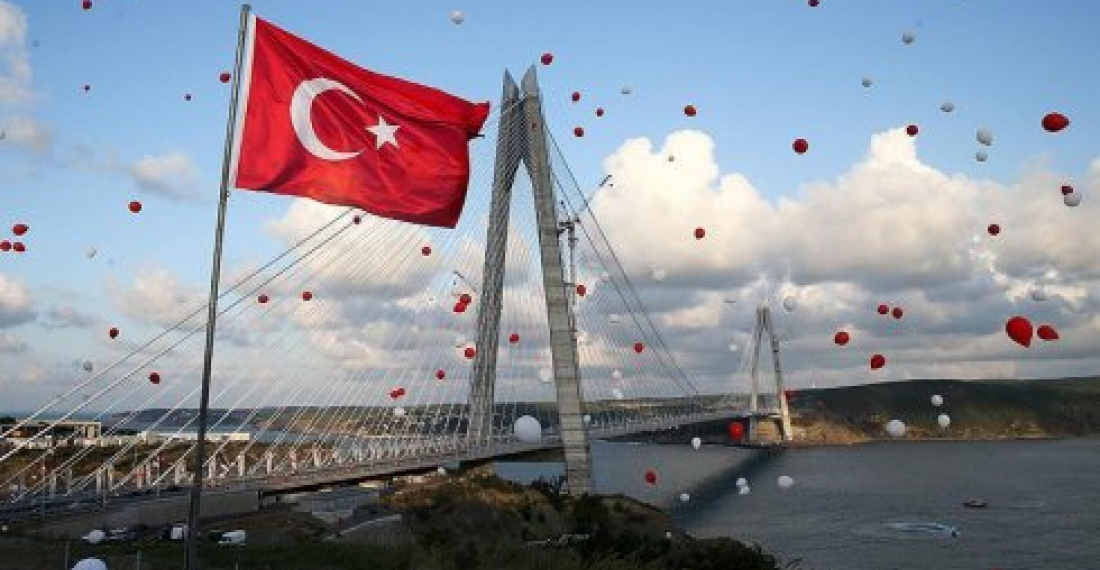A third bridge spanning Istanbul's Bosphorus waterway opened Friday with a ceremony attended by President Recep Tayyip Erdogan and Prime Minister Binali Yildirim.
"We are connecting continents," Erdogan said. "We are celebrating together and we are very proud of it. The nation deserves this. With God's permission, this nation will get what it deserves.This is great day and joyful day."
The Yavuz Sultan Selim Bridge was described as a new necklace for the city by Prime Minister Binali Yildirim. "It will not only serve to Istanbul but also serve to every journey in the historic Silk Road, starting from the Far East, ending in Europe and bringing civilizations together by connecting people," he told a crowd of dignitaries.
The bridge, which cost nearly $3 billion to construct, is the latest in a raft of infrastructure "mega-projects" unveiled by the government.
Named after Selim I, the 16th century sultan known for his expansion of the Ottoman empire, the bridge accompanies the July 15 Matryrs' Bridge -- previously the Bosphorus Bridge -- and the Fatih Sultan Mehmet Bridge in crossing the Bosphorus.
It is the world's longest suspension rail bridge and will lead to $1.75 billion-a-year in savings through reduced travel times and energy costs. The 1.4 kilometer (0.9 mile) bridge will carry eight lanes of traffic and two rail lines between Europe and Asia at the entrance of the Bosphorus to the Black Sea.
All trucks and heavy-duty vehicles will be directed to the bridge to ease traffic on the other bridges, as well as cut congestion and pollution in Istanbul.
source: commonspace.eu with anadolu news agency
photo: The new Yavuz Sultan Selim bridge across the Bosphorus (picture courtesy of Anadolu news Agency, Turkey).






